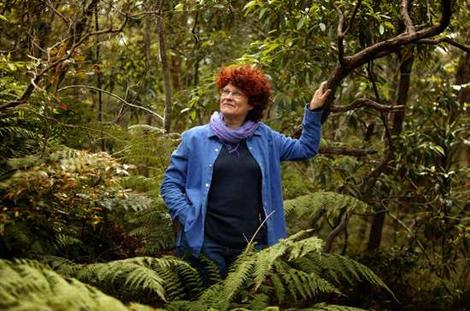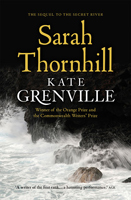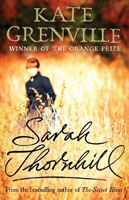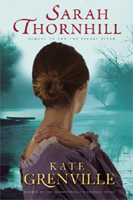 |
As Kate Grenville's latest novel, Sarah Thornhill, is published in the UK, she is undertaking a ranging book tour of the UK and Ireland. She spoke to Stephanie Cross of "The Independent": |
Opening in 1816 on New South Wales's Hawkesbury River, Sarah Thornhill picks up where The Secret River left off, and reunites readers with the Thornhill clan. The head of the family, a figure based on Grenville's own forebear, was a thief "sent out" from London to Australia, there becoming a successful farmer. The exact details of Grenville's ancestor's story are lost to history, but the fictional Thornhill is involved in the massacre of Aborigines.
For Grenville, the trilogy has been a very personal undertaking. "The Secret River began because, at the age of 50, I suddenly realised I knew nothing about how my own family had got its foothold in Australia," she explains.
And to Andrew Williams of the Metro website:
What is your new book, Sarah Thornhill, about?
It's set in colonial Australia and it's about a woman who discovers an ugly family secret concerning a massacre of aboriginal people and what she does about it.
You've written about this subject before - why are you interested in it?
When I was growing up we weren't taught these aspects of Australia's past - it was all about pioneer heroes. It's no good trying to ignore it - let's look at it and acknowledge the wrongs committed in the past. One well-documented case is the Waterloo Creek massacre in New South Wales in 1838, one of the very few cases that came to court. Perpetrators of massacres weren't often caught - and if they were, they were often let off. This massacre involved aboriginal women and children being chained neck-to-neck, taken up a hill and shot. Their bodies were burned. This aspect of our history needs to be acknowledged and my way of addressing it is by writing books.
Not everyone is so keen to acknowledge it, are they?
No. A little while ago, we had something called the 'history wars' in Australia, in which two schools of historians were at each others' throats - one group said aboriginal people died out due to measles. The problem with finding written evidence is it was in no one's interest to write: 'We went out and shot 12 aboriginal people today.' However, they did write things such as: 'We went out with our rifles and dispersed the natives.' The word 'dispersed' comes up again and again in the records and you can guess it probably meant we shot at them and shot some of them.
And also to Eileen Battersby of "The Irish Times":
The sparky, intelligent Grenville is direct and, though she remains on the polite side of blunt, a realist who speaks her mind. There is a likable energy about her and a curiosity about everything. Her daughter, Alice, has recently graduated from a combined arts and science degree - "Can you imagine? What a fabulous mixture of information" - and is currently minding baby sloths.Australian, UK and US bookcovers:
Grenville reads widely and carefully and misses little. "It's not easy being a writer, it's not easy being a woman writer and it's certainly not easy being an Australian woman writer." Her prose is deliberate and carefully weighted. She explains the difficulty of coming of age in Australia at a time when history had an official version that deleted many of the uglier facts. "We were horrified by the Nazis and by the Afrikaners, and yet we had our own crimes that we had not dealt with. And you have to remember that when I was young - I was born in 1950 - most Australians still regarded England as home. Imagine that: 'home' a place you had never been to. We were far closer to Asia than to Europe."
She took an arts degree at Sydney University and, true to the ritual adhered to by generations, set off for England, where she worked at a number of jobs, including film editing, and even developed a short-lived version of an English accent. But, as she says, "I am an Australian", and it seems she was fated to be a writer: her father had written three books in his retirement, and her mother provided a valuable legacy of stories, "stories that didn't always have all the facts, so I had to find them".
 |  |  |
